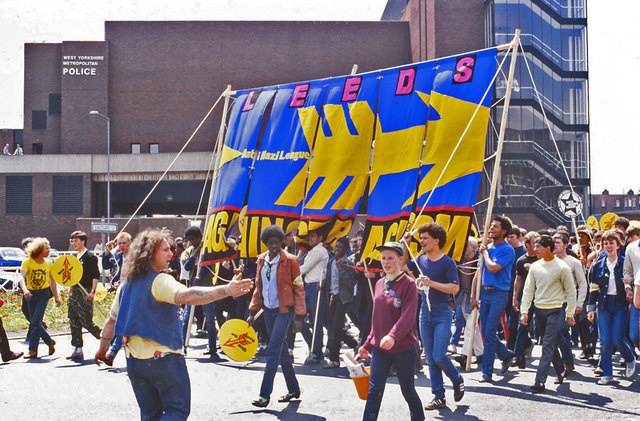It’s Black History Month in the UK, and this year The Gryphon is celebrating Black Liberation within its print issue. Black History Month is of course commemorated nationally, but it’s important to educate yourself on the history of your local community. Here’s a rundown on some of the important events and people within the city’s extensive Black history, using resources provided by Secret Library Leeds.
The Windrush Generation
1948 marks the first arrival of economic migrants from the Caribbean Islands to Yorkshire. By the early 60’s, the Black population in Leeds was estimated to be 4,000; made up of skilled labourers, carpenters, teachers and tradesmen. The Windrush generation were promised work and a good life in the UK, and were instead met with poor living conditions, limited job prospects and outright racism. Despite these setbacks, the African-Caribbean community flourished in the local area, creating groups and organisations such as the Caribbean Cricket Club and the Aggrey Society.
Norma Hutchinson
A Trade Unionist and local councillor to Chapeltown, Jamaican-born Norma Hutchinson moved to Leeds in 1968 as a nurse. After being elected in 1991, Hutchinson went on to have a successful career in local politics and activism. Before sadly passing away in 2004, Hutchinson was an activist for women’s rights, as well as a chair for environmental health and housing committees. Hutchinson also did a lot of work for her home country, raising money for health campaigns back in Jamaica.
Rock Against Racism
Leeds Beckett University was home to the second Rock Against Racism (RAR) concert in the UK, a series of gigs to raise awareness against prejudice and systemic violence. Fascism was sadly present in 1970’s Leeds, due to post-industrial decline and the rise of far-right groups such as the National Front. RAR directly opposed these views, organising gigs and clubs in support of anti-racism throughout the decade. In Leeds, the local RAR organisation was supported by musical acts such as Delta 5 and Gang of Four, and in 1981 the last RAR Carnival took place in Chapeltown.
Cedric Clarke
This pillar of local politics was elected as the first Black councillor in Leeds in 1980, and remained in his position for the Labour Party for a decade. Whilst holding his position, Clarke was part of the Education, Nursery, Industrial and Employment committees, as well as vice-chairman to the city’s Equal Opportunities sub-committee. Clarke’s main focus was to improve the lives of minorities living in his city, introducing 220 affordable new houses for the area and creating more diverse teaching within local schools.

